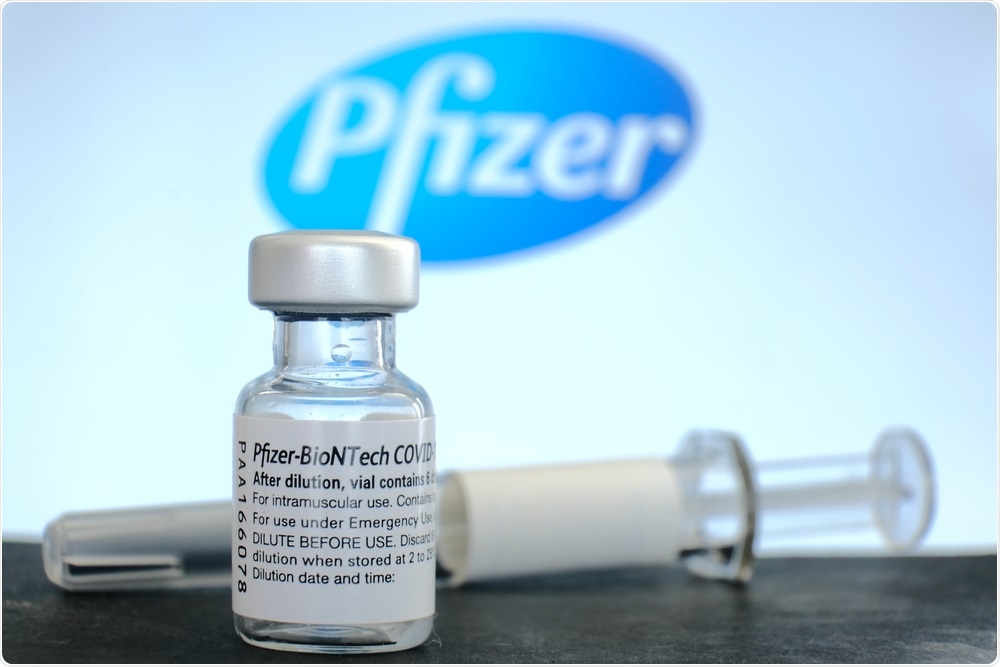The severe acute respiratory syndrome coronavirus 2 (SARS-CoV-2), which is the virus responsible for the coronavirus disease 2019 (COVID-19), has infected over 229 million people worldwide and claimed the lives of more than 4.7 million. Recently, a team of researchers assessed the effectiveness of the Pfizer-BioNTech BNT162b2 messenger ribonucleic acid (mRNA) COVID-19 vaccine.
 Study: Safety and Efficacy of the BNT162b2 mRNA Covid-19 Vaccine through 6 months. Image Credit: Flowersandtraveling / Shutterstock.com
Study: Safety and Efficacy of the BNT162b2 mRNA Covid-19 Vaccine through 6 months. Image Credit: Flowersandtraveling / Shutterstock.com
The Pfizer-BioNTech COVID-19 vaccine
Although COVID-19 vaccines were previously administered after receiving temporary emergency approval from various federal agencies around the world, the Pfizer-BioNTech vaccine has since received full approval from the United States Food and Drug Administration. The BNT162b2 vaccine is a lipid nanoparticle–formulated, nucleoside-modified RNA vaccine that encodes for the SARS-CoV-2 full-length spike glycoprotein in a prefusion stabilized conformation. To date, over 1 billion doses of the BNT162b2 vaccine have been administered worldwide.
About the study
The current study, published in The New England Journal of Medicine, was observer-blinded and had a pivotal efficacy trial. This study considered populations with diverse ages, sexes, race or ethnic groups, and risk factors for COVID-19.
The team randomly distributed nearly forty-four thousand participants into two age groups. The first group included individuals 16 years and older, whereas the second group included those between 12-15 years and consisted of around two thousand participants.
Notably, 50% of the participants were female. Additionally, the median age of the study participants was 51 years, and the median BMI was 30 or more.
Both age groups received two 30 micrograms (µg) doses of the Pfizer-BioNTech vaccine or placebo at twenty-one days apart. The trial outcomes included vaccine efficacy and safety corresponding to the laboratory-confirmed COVID-19 results that were obtained six months after vaccination.
Study findings
The researchers established that the BNT162b2 vaccine continued to be safe and had a satisfactory adverse-event profile. However, few participants included in the current study experienced adverse reactions to the vaccine, which lead to their removal from the trial.
Vaccine efficacy against COVID-19 was 91.3% through six months of follow-up among the participants without any proof of previous SARS-CoV-2 infection. The study showed a gradual decline in the efficacy of the vaccine, thus supporting the use of future booster doses.
Furthermore, the researchers found vaccine efficacy against severe disease to be 96.7%. In South Africa, where the SARS-CoV-2 Beta (B.1.351) variant of Covid-19 was the dominant circulating strain, a vaccine efficacy of 100% was noted.
Conclusion
Through six months of follow-up and despite a continuous decline in vaccine efficacy, the BNT162b2 vaccine exhibited a promising safety profile and was very effective in preventing COVID-19.
During the period in which the current study was conducted, around forty-five thousand participants of sixteen years and above underwent screening. The study involved about 152 sites in phase two of the investigation. Amongst these participants, at least the first dose or placebo was given to everyone at random, and 98% received the second dose.
During the blinded trial period, 51% of the participants in each group had less than six months of follow-up after the double dose. However, the researchers conducted six months of follow-up post-second dose for 8% of the participants in the COVID-19 vaccine group and 6% in the placebo group.
“The data in this report show that BNT162b2 prevents COVID-19 effectively for up to 6 months after the second dose across diverse populations, despite the emergence of SARS-CoV-2 variants, including the beta variant, and the vaccine continues to show a favorable safety profile.”